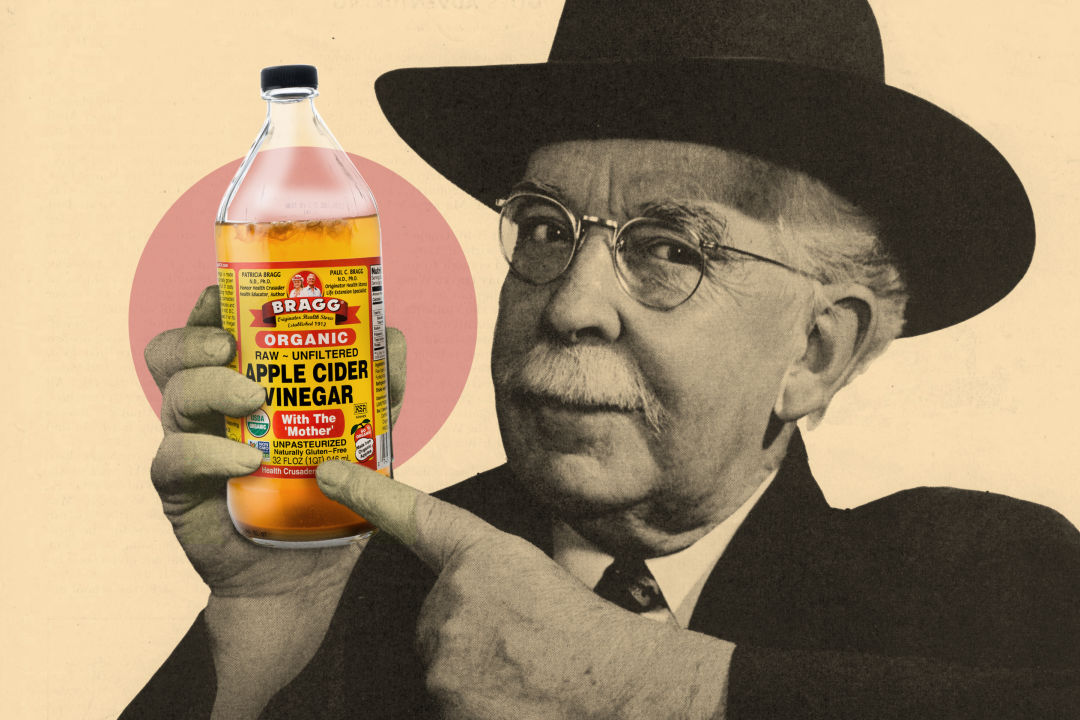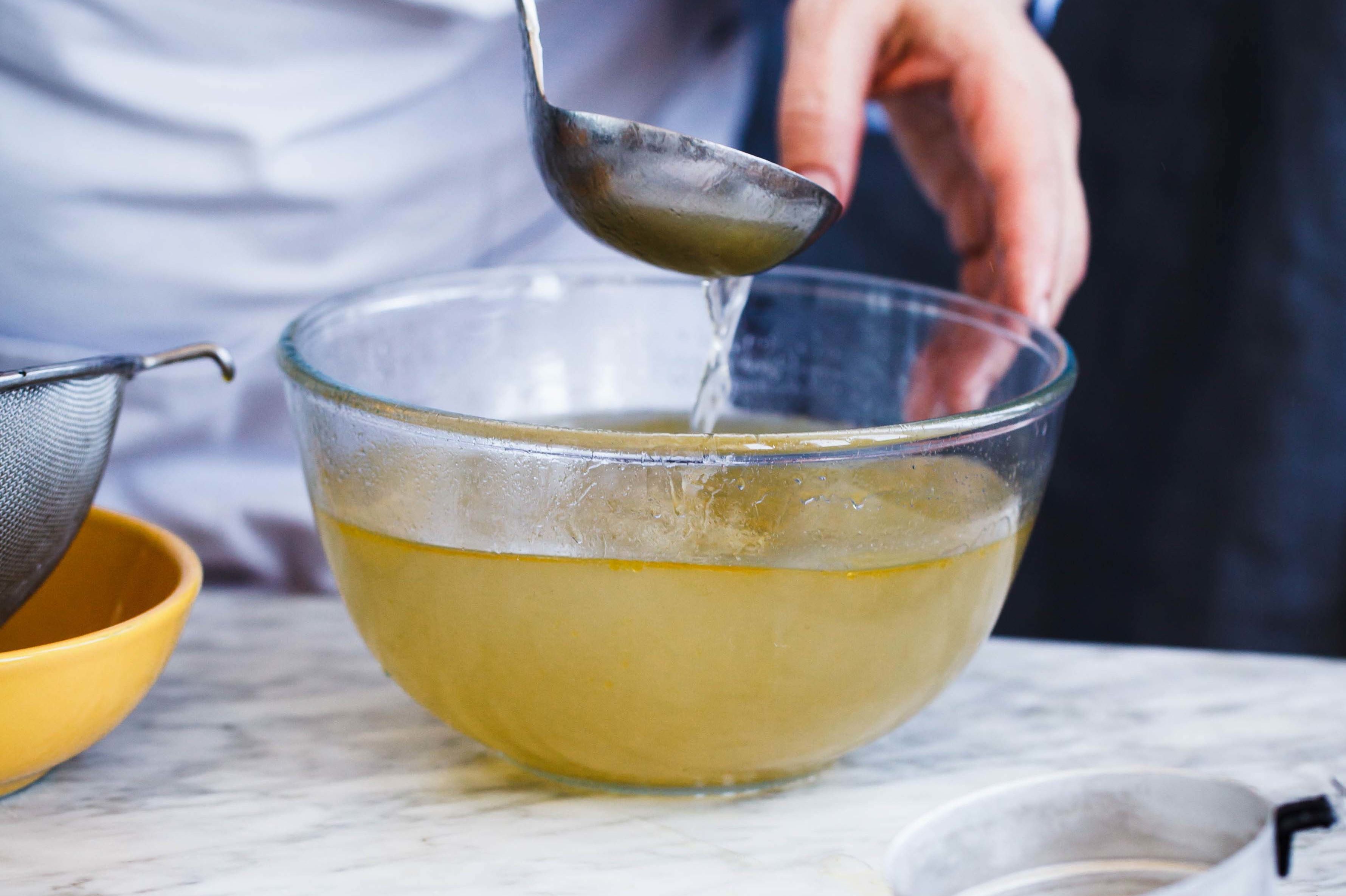Is Apple Cider Vinegar a Magic Elixir or Acidic Snake Oil?

We're all looking for that one elixir that solves the problems of modern living, and the multibillion-dollar wellness industry promises us a new silver bullet every year.
For years, I’ve seen apple cider vinegar promised as a life-changing addition to the human diet. According to devotees, it promotes weight loss, gets rid of eczema and can even help with diabetes. It’s also very cheap. A pint of the stuff costs less than $10. So, for the past several months, I’ve added it to my diet. Is it a magic potion or acidic snake oil?
Vinegar as medicine is not new. For thousands of years, we’ve used vinegar for its supposed health benefits. Hippocrates, the ancient Greek father of medicine whose name all modern doctors swear an oath to, used vinegar as an antiseptic on his patients. Vinegar is produced when yeast eats the sugary liquid of plants and the liquid ferments into alcohol. Once exposed to oxygen, the bacteria Acetobacter converts the alcohol into acetic acid, the ingredient in apple cider vinegar that supposedly makes it so healthy.
I've used apple cider vinegar in two ways: first, as a digestive cocktail to prevent feeling bloated after a meal; and second, as a shampoo. Each morning and evening, I mix the juice of half a lemon, a dash of maple syrup, a can of seltzer and two tablespoons of apple cider vinegar and drink it down. I think it’s pretty tasty, and while it might be psychosomatic, my tummy feels pretty decent throughout the day. For my hair, I dilute one part apple cider vinegar in 10 parts water and rub it into my scalp. My scalp is less itchy, but it makes me smell like a salad for an hour or so afterward.
In general, it’s best to be wary of anyone who says this one thing will change your life in multiple ways. There are grifters all over the internet who go as far as to say that apple cider vinegar can cure cancer. But there is some evidence that apple cider vinegar can do you some good.
Several studies haven shown that just a couple tablespoons of vinegar can improve insulin sensitivity and lower blood sugar and insulin response to high-carb meals. There is also evidence that vinegar can help you lose weight by increasing feelings of fullness. One study showed that participants ate between 200 and 275 fewer calories per day after drinking vinegar with meals.
The problem with all of these studies is that they were small and narrow. You can find just about any one-off study that will show the results you desire.
But if it’s the acetic acid that is so healthy, why consume just apple cider vinegar? Most vinegars have the same amount of acetic acid. You could also just drink a bottle of kombucha and get the same nutrients. The answer is a combination of American colonial history and good marketing.
Apples are not indigenous to the Americas. They come from Kazakhstan. But colonial America became obsessed with the fruit. Settlers planted apple trees to stake claims to territory, and there really was a guy named Johnny Appleseed. He was part of a Christian sect called the Swedenborgians, who believed that grafting fruit trees was a kind of plant torture, so he just grew apples from their seed.
The problem with apples is that they are heterozygous—which means that you will get a genetically divergent fruit from the parent you took the seed from. When Mr. Appleseed chaotically planted apples around the country, he produced mostly inedible bitter or sour-tasting apples—perfect for making apple cider vinegar (and apple cider booze). As a result, many Americans had homemade apple cider vinegar somewhere in the cupboard.
Eventually, 20th-century industry made vinegars cheap and pasteurized, and home-brewed vinegars fell out of favor. It wasn’t until the 1970s, when a California New Age health guru named Paul Bragg started marketing raw, unfiltered apple cider vinegar "with the 'mother'" as a miracle health elixir, that the fermented liquid made a comeback. The "mother" is the remnants of the fermentation process and proponents claim it contains healthy probiotics. Today, you’ll see Bragg's text-laden, red-and-yellow bottles in just about every grocery store. In fact, in 2019, pop star Katy Perry bought the company. (She was a neighbor and went to church with Patricia Bragg, Paul Bragg’s daughter.) The “with the 'mother'” marketing has made the brand one of the most recognizable, but there is no evidence that the “mother” has any health benefits.
So is apple cider vinegar the miracle elixir some would have you believe? I have found that it’s a nice way to stave off hunger and sweets and keep your scalp healthy, but it seems like any kind of fermented vinegar would do the same. Truth is: I like the taste.



